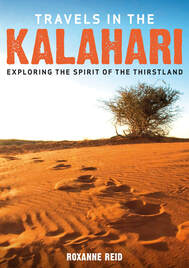We take a drive to the Makhadzi picnic site in the Kruger National Park, near the border with Mozambique, and unexpectedly come face to face with a bunch of colourful – some might say off-colour – rascals from days gone by.
After enjoying a cup of coffee at one of the shady picnic tables, we duck into the information centre to spend some time with a bunch of boisterous Lowvelders who lived in the area at the start of the 20th century.
Known as Steinaecker’s Horse, they were a voluntary unit made up of mostly non-professional soldiers. During the Anglo Boer War (or South African War as it’s now more properly known), one of their tasks was to patrol what's now the Mozambique border against attacks by the Boer guerillas. Another was to prevent the Boers from making contact with pro-Boer sympathisers in the Portuguese territory to the east.
Founder and head honcho of Steinaecker’s Horse was the Prussian-born Francis Christian Ludwig von Steinaecker. Obviously an adventurous sort of chap, he joined the British forces as soon as war broke out in 1899.
Before long he had impressed the Brits by blowing up a culvert near Malelane (in the south of what is today the Kruger National Park). He was obviously made of the right kind of stuff, they thought, so they allowed him to raise his own cavalry unit of about 450 men, mainly local volunteers from the Lowveld. The unit’s northernmost outpost was about 15 kilometres northeast of where Kruger’s Letaba camp is today.
Although Steinaecker’s boys did participate in a number of battles, none of which had any effect on the outcome of the war, the info boards tell us that that they were also notorious for their ‘misconduct’.
But there’s no mention of what kind of hell they raised, apart from hunting the area just about dry. And that’s frustrating because I don’t know about you, but I reckon there’s nothing more captivating than stories of wickedness and bedlam.
Archaeological digs in the area have nonetheless turned up evidence of what their lives were like.
Daily chores would have included metalwork to make and repair horseshoes and cast iron cooking pots, cutting firewood, and so forth. But of all their tasks, hunting and butchering game seems to have been the one they relished the most.
Perhaps less concerned with personal hygiene than some of us are today, the men used to swim in a nearby waterhole to keep clean and cool – until one day when a croc was seen lurking in the water.
As just about everyone knows, the British Army in Africa was badly rationed. Bully beef, oily ham and hard biscuits were the boring staples.
Steinaecker’s men were much better off.
They feasted on tinned fruit and veg, pickles, fresh game meat, even whisky, and they got fresh milk from local cattle. They even had some condiments to spice things up – excavations turned up pieces of Holbrooks Worcestershire sauce and Bovril bottles. For the ultimate in luxury, freshwater mussel shell fragments dug up by archaeologists hint at other delicacies on their varied menu.
But the life wasn’t all fun and feasting. This is the Lowveld, remember, where malaria took a high toll, despite the use of quinine and hot whisky as treatments in those days.
In fact, of the 114 casualties among Steinaecker’s Horse during the three years of war, only 11 men were actually killed in action. Nearly 30 fell prey to malaria, one to a lion, another broke his neck falling from horse, and yet another became dinner for a croc in a local river.
Although Steinaecker’s Horse was disbanded in 1903 after the war ended, some of its members continued to have an influence on the history of the area.
For instance, Steinaecker’s second-in-command, worried about indiscriminate hunting in the area, wrote a report about the preservation of wildlife that put a stop to the wholesale destruction of game. It was later used as a guide when the Kruger Park was established. Some of the unit’s members were even appointed as game rangers in the park.
One of the most famous of these was Harry Wolhuter, still remembered today for his bravery in fighting off and killing a lion with his knife.
Copyright © Roxanne Reid - No words or photographs on this site may be used without permission from roxannereid.co.za


